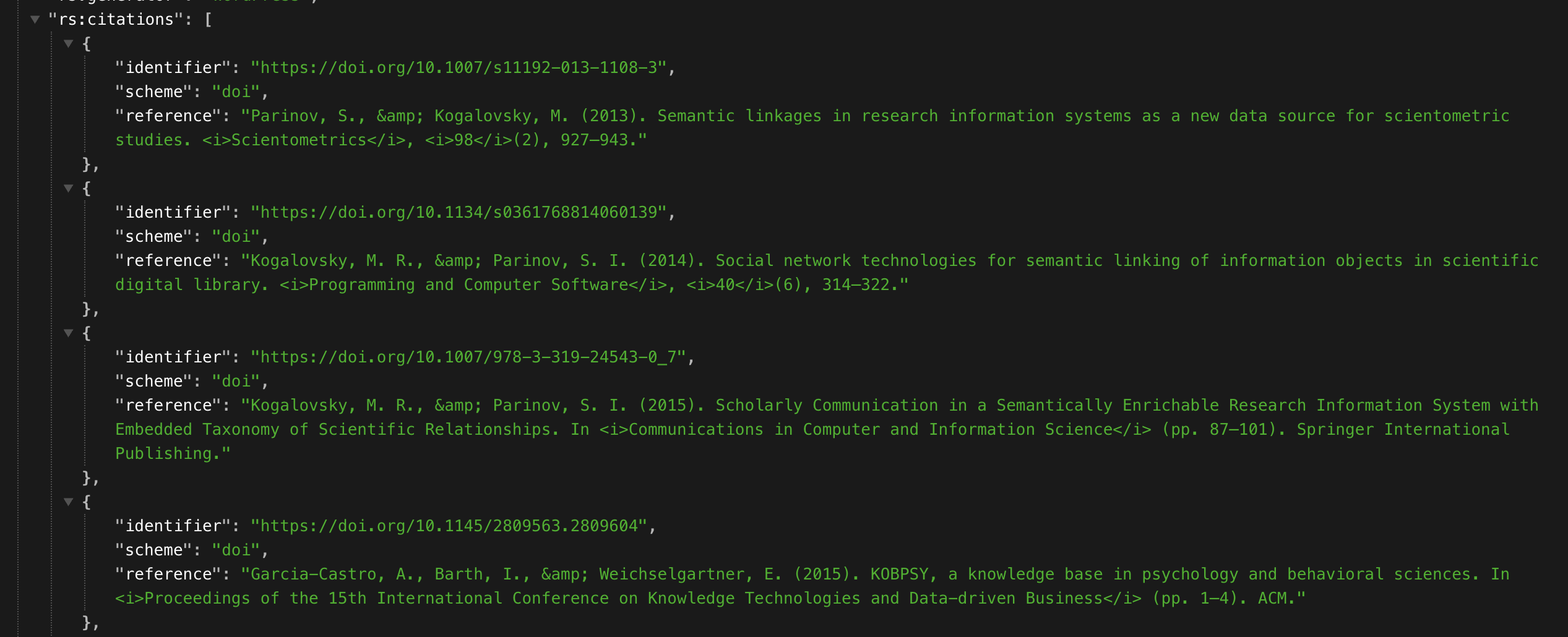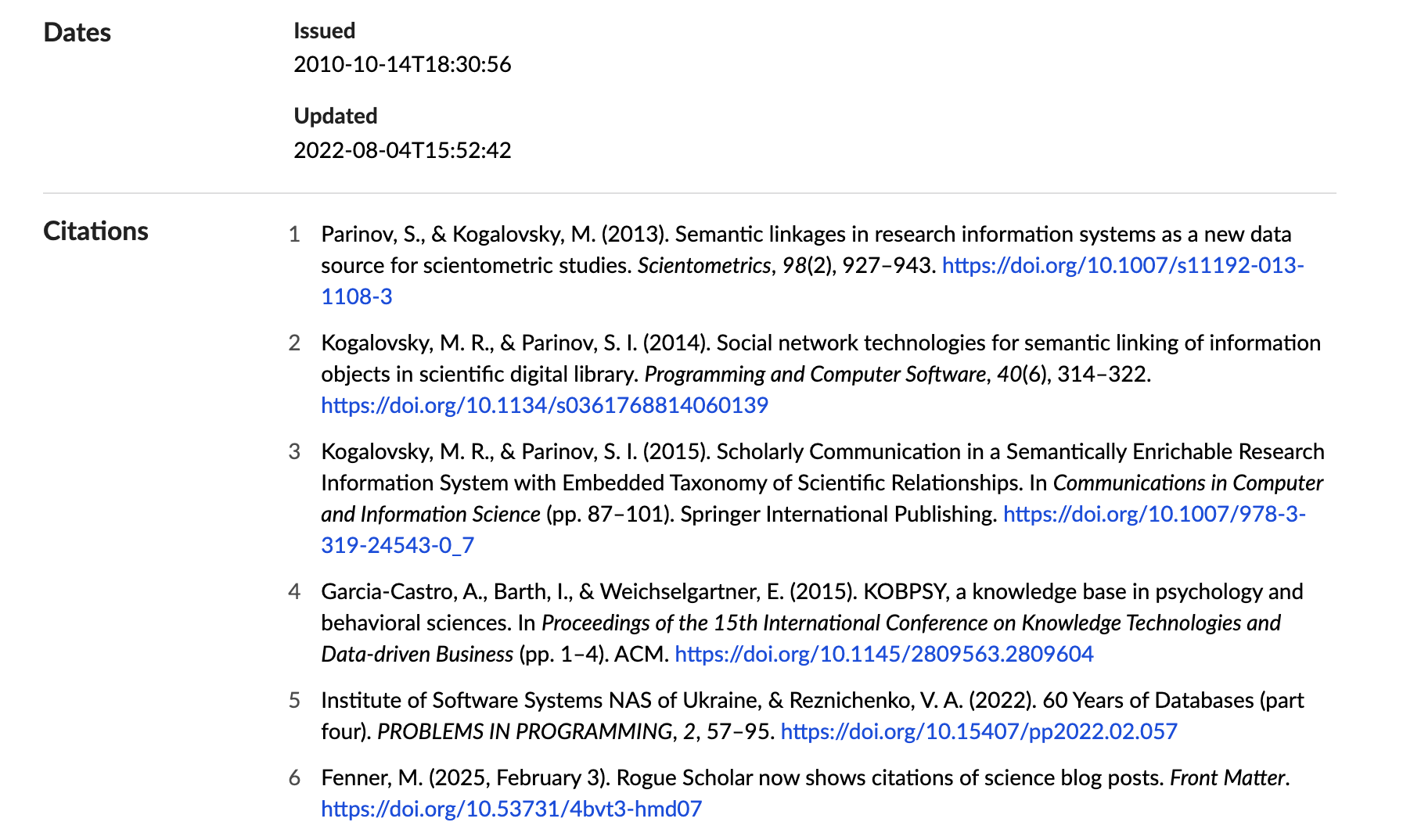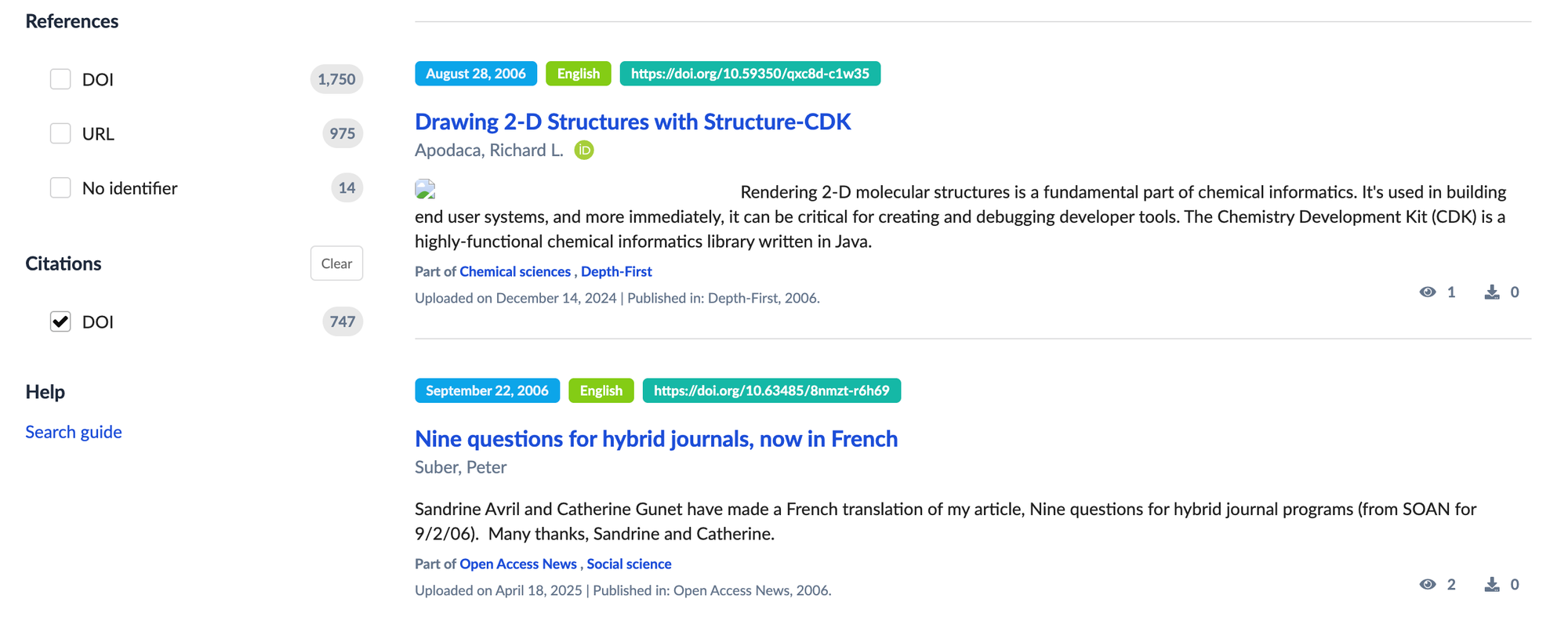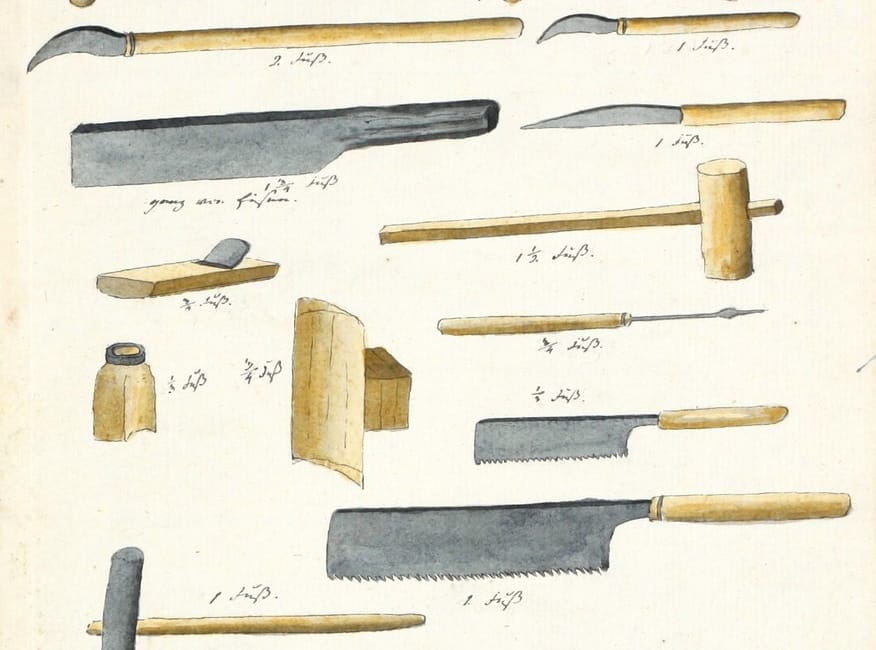The Rogue Scholar science blog archive uses DOIs to uniquely identify blog posts with meaningful metadata. This enables tracking citations of scholar blog posts in the scholarly literature using traditional citation tracking methods rather than altmetrics. Initially launched as a Rogue Scholar service six months ago, citation tracking has launched to production this week.
The following features are now available:
- Automatically fetch citations of Rogue Scholar posts from the Crossref Cited-by service once a week,
- Automatically add these citations to Rogue Scholar posts as custom metadata (in the same format as references),
- Make these citation metadata available via the Rogue Scholar API,
- Added a Citations search facet to filter Rogue Scholar posts,
- Show the number of citations in the Rogue Scholar dashboard.




The Altmetrics manifesto stated in 2010 that
Altmetrics are fast, using public APIs to gather data in days or weeks. They’re open – not just the data, but the scripts and algorithms that collect and interpret it.
In the past 15 years we have seen that the tools and services around altmetrics have taken a different path: altmetrics data from sources like Twitter, Facebook or Mendeley never really became open, and neither did the services aggregating and showing them, or the algorithms aggregating and interpreting them. Efforts like PLOS Article-Level Metrics (where I was the technical lead from 2012 to 2015) or Crossref and DataCite Event Data tried hard but ultimately failed because the data sources were not open, and social media feeds were increasingly driven by algorithms. This social media platform decay was coined enshittification by Cory Doctorow in November 2022.
Rogue Scholar is trying a different approach. Instead of altmetrics as a filter to make sense of the scholarly literature, it helps scholarly blogs to become part of the scholarly literature. Rogue Scholar applies the concepts of persistent identifiers (DOI, ORCID, ROR), standardized metadata (Crossref, DataCite), Open Data and Open Access (CC-BY licenses for all content, OSI-approved licenses for all software), and even experiments with peer review. And it now adds citation tracking. Blog posts are rarely cited in the scholarly literature, but that is more about current citation practices than the ability to do so.
Crossref is smart enough to figure out that links to blog post URLs in reference lists are conceptually the same as citing a DOI, and that is why Rogue Scholar can find citations to Rogue Scholar blog posts published long before these blogs joined Rogue Scholar. Open Access News was published 2003-2010 and joined Rogue Scholar in 2025, and Crossref finds 22 citations in the scholarly literature to its blog posts.
Blog posts are typically published much faster than scholarly articles or even preprints. That is why the post on the Crossref blog announcing that the blog started assigning DOIs to all its posts published in June already has two citations two weeks later, both from Rogue Scholar blogs.
Citation tracking of course has limitations. I am not talking using citation counts as a proxy for scientific impact, but rather about technical limitations of automated citation tracking. The main challenge is that only citations that show up in reference lists with an identifier (DOI or URL) and where the reference list is openly made available to Crossref (I4OC) are found.
Another challenge is that automated workflows make mistakes – for this reason, Rogue Scholar can exclude falsely linked citations, and has occasionally done so. Please reach out if you find a citation in Rogue Scholar that is not found in the reference list of the citing scholarly work.
Rogue Scholar registers Crossref DOIs for blog posts but also includes blogs that register their DOIs using DataCite. Less than 10 blogs of the currently 168 Rogue Scholar blogs do so, and I currently have no easy way to collect citations for these blog posts. DataCite has a similar service to Crossref Cited-by, but the citing scholarly literature is currently mostly in Crossref. Third-party services such as OpenAlex also show the citations of the Crossref blog post mentioned above, but OpenAlex currently has only limited support for scholarly blog posts registered by DataCite.
I hope that the new citation tracking service encourages Rogue Scholar bloggers to publish more blog posts with references (currently only 4.98 % of posts), as references and citations are closely connected (how to include references in blog posts is documented here). And I hope that readers of Rogue Scholar blog posts discover interesting scholarly works through the citation tracking service. 460 of the 1370 Rogue Scholar citations are also blog posts, but the most popular citing content type is journal article:
- journal article 648
- blog post 460
- preprint 117
- book chapter 117
- proceedings article 12
- book 7
- other 9
Please use Slack, email, Mastodon, or Bluesky if you have any questions or comments regarding the Rogue Scholar citation tracking service.
References
- Priem, J., Taraborelli, D., Groth, P., & Neylon, C. (2010). Altmetrics: A manifesto. https://doi.org/10.5281/zenodo.12684249
- Fenner, M. (2025, February 3). Rogue Scholar now shows citations of science blog posts. Front Matter. https://doi.org/10.53731/4bvt3-hmd07
- Fenner, M. (2013). What Can Article-Level Metrics Do for You? PLoS Biology, 11(10), e1001687. https://doi.org/10.1371/journal.pbio.1001687
- Doctorow, C. (2022, November 17). Social Quitting. Medium. https://doctorow.medium.com/social-quitting-1ce85b67b456
- Marcum, C. S. (2025, April 8). Peer-Review for a Blog Post? My Experience with MetaROR. Upstream. https://doi.org/10.54900/bymaz-4fw37
- Stoll, L., Vale, P., & Clark, R. M. (2025, June 24). Scholarly blogs and their place in the research nexus. Crossref Blog. https://doi.org/10.64000/552ec-b8g03
- Shotton, D. M. (2017, April 6). The Initiative for Open Citations. OpenCitations Blog. https://doi.org/10.59350/jdwj8-at997


